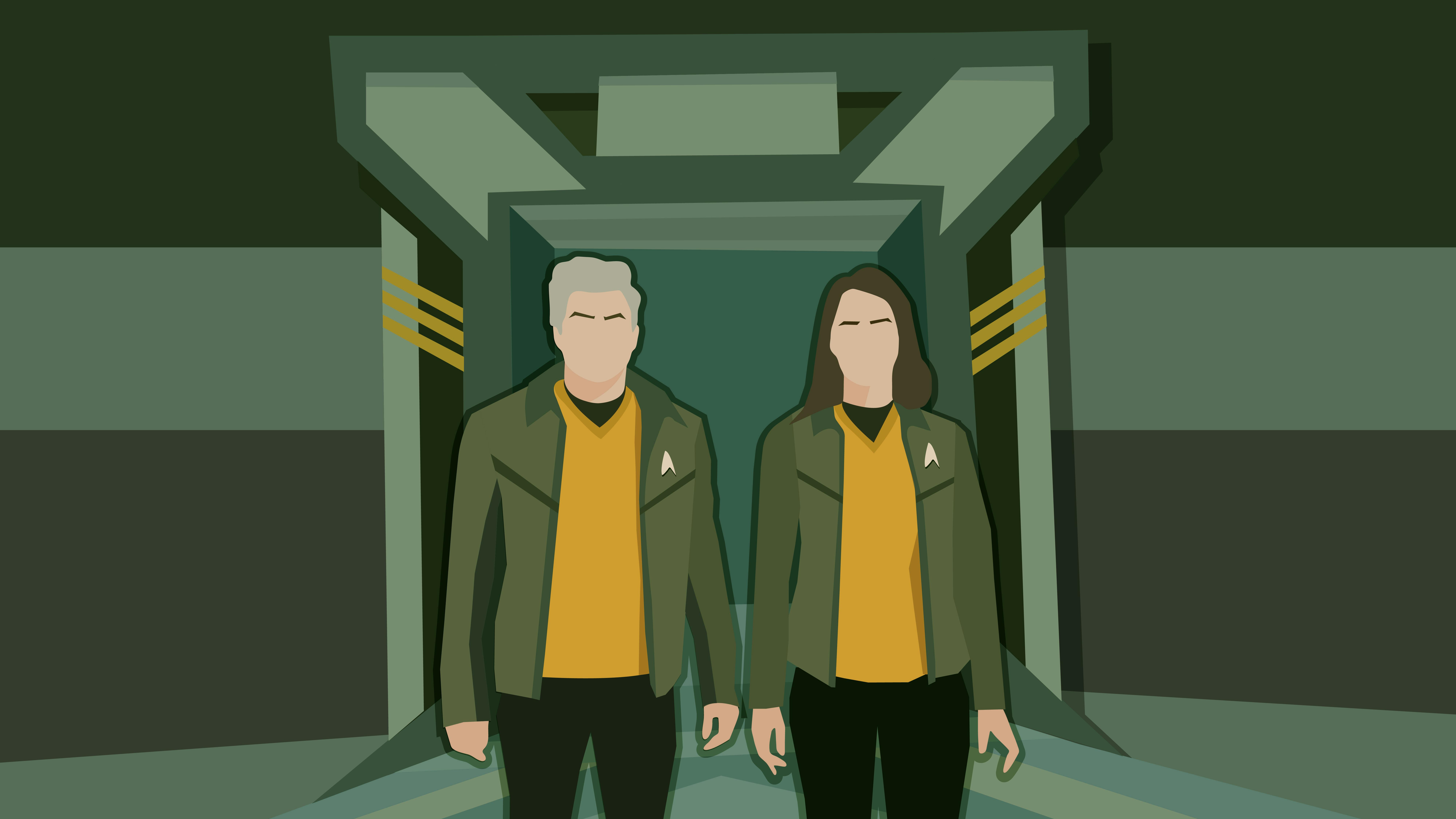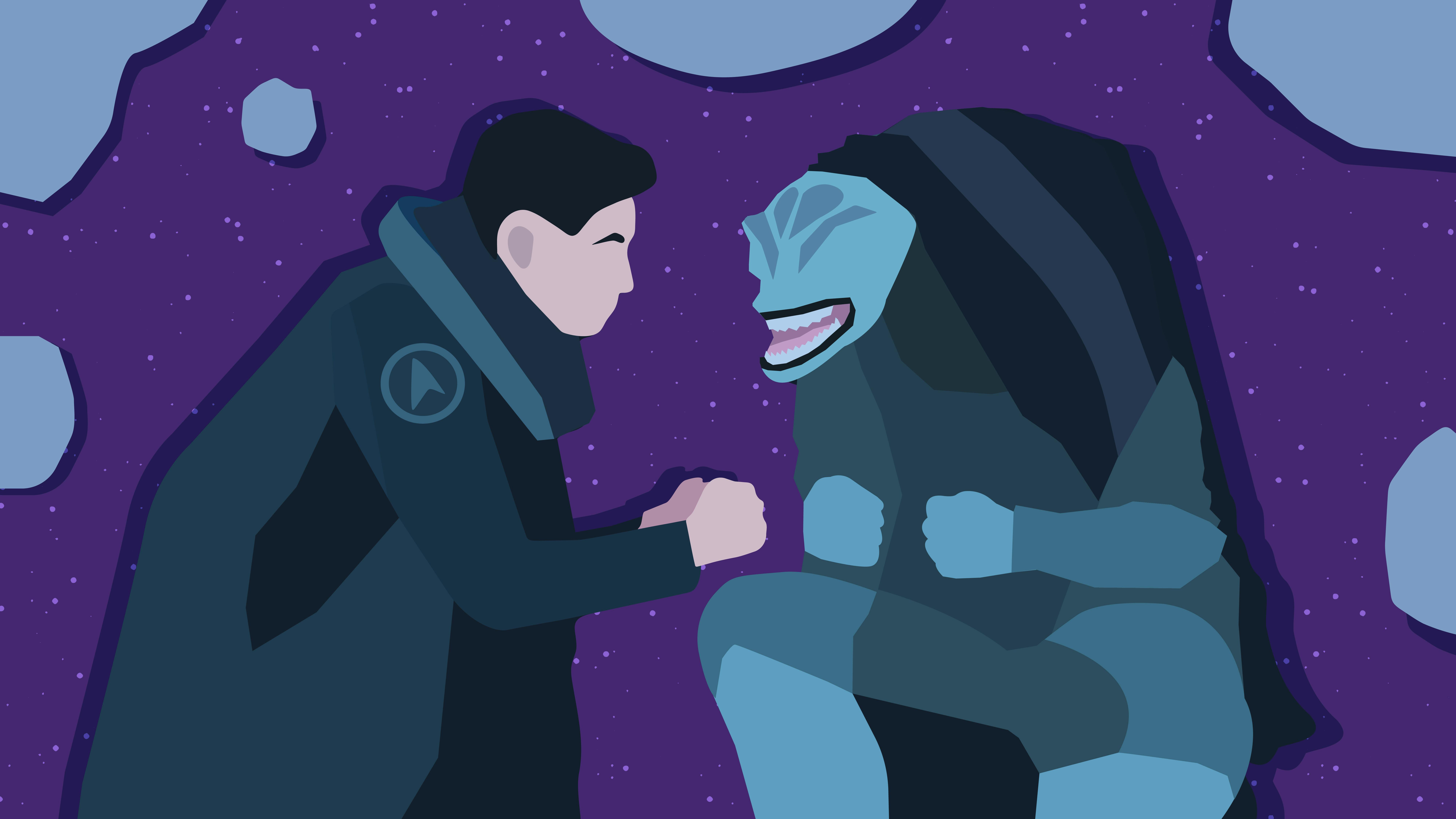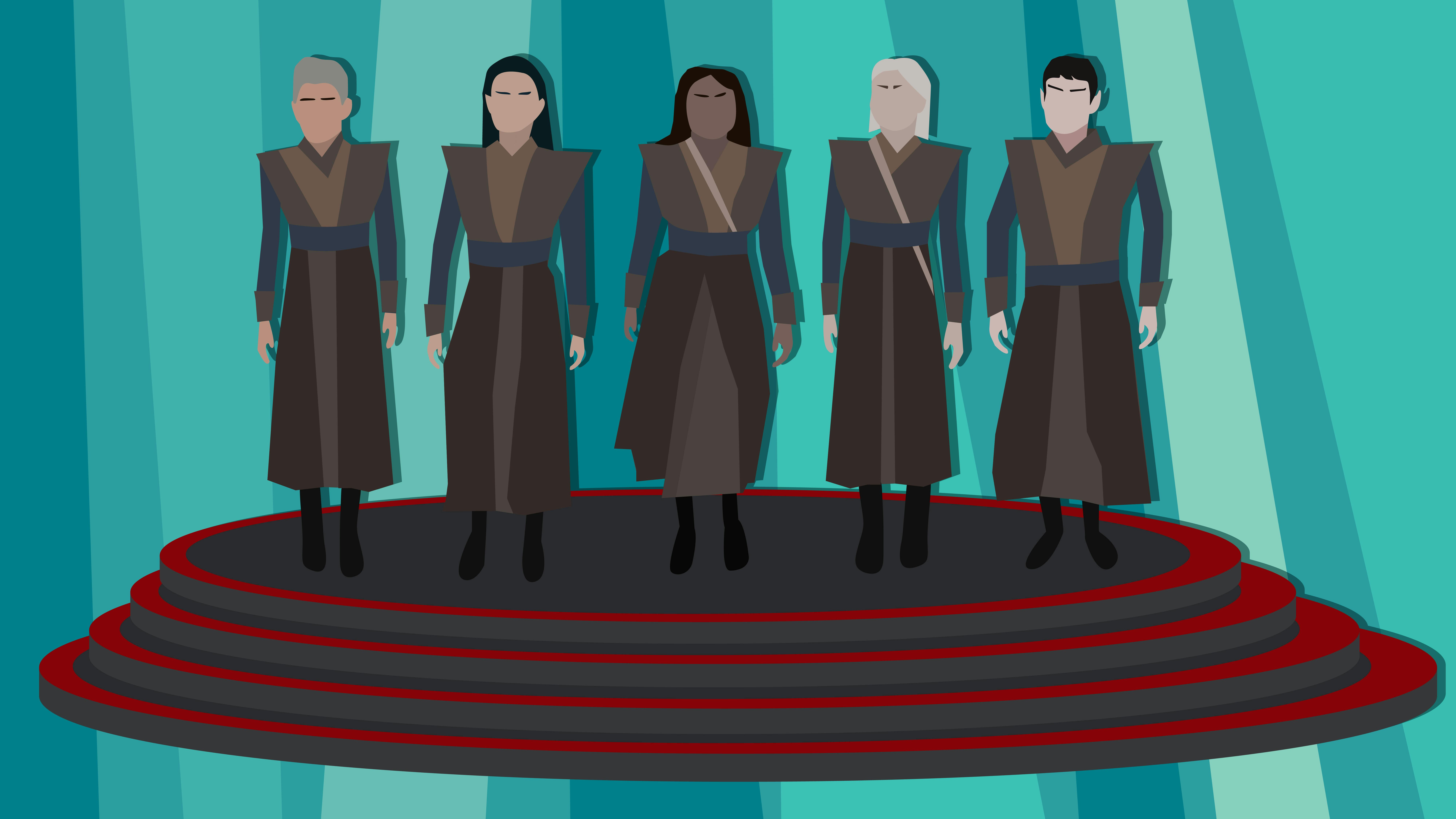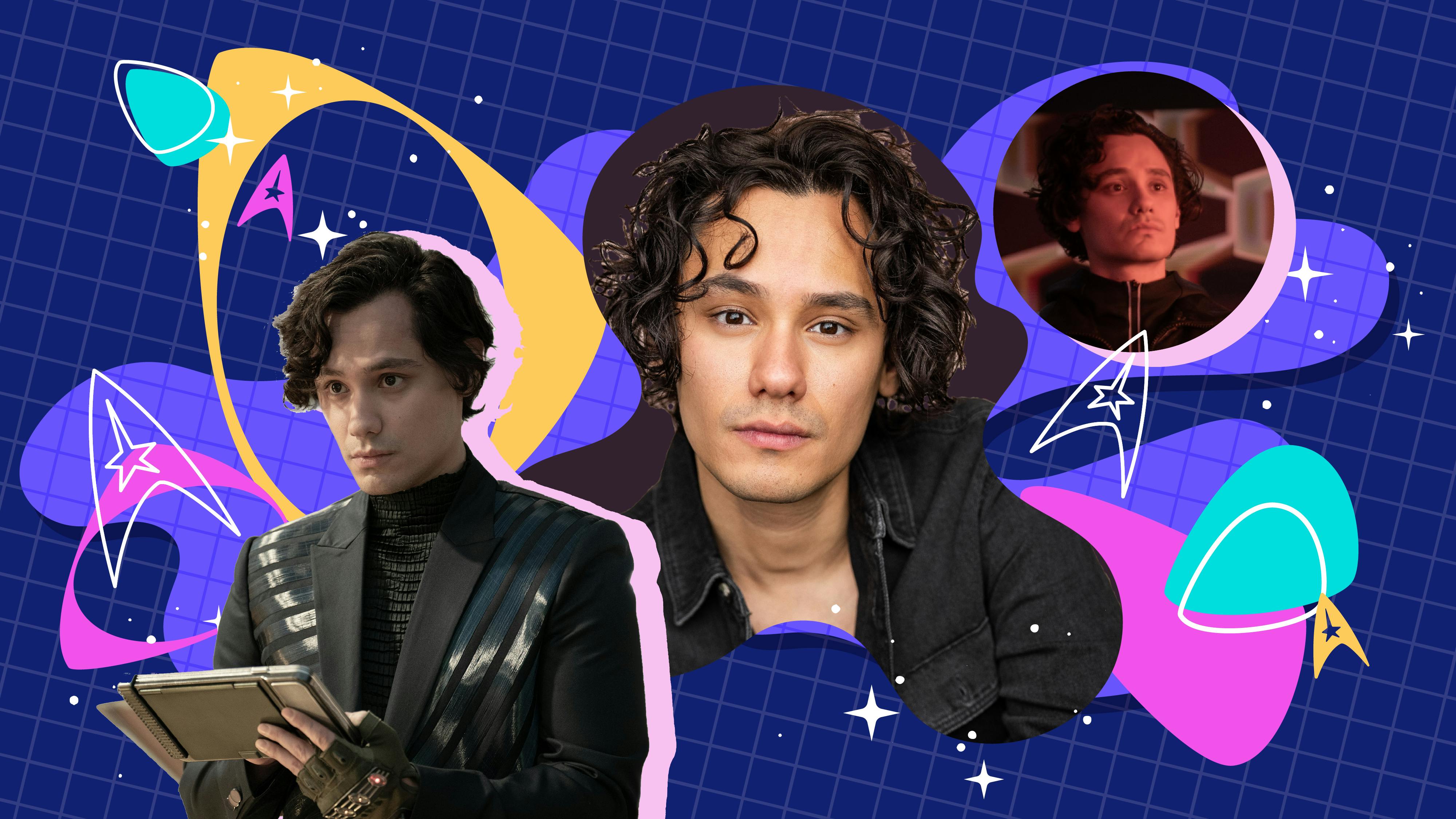Published Mar 3, 2021
How Discovery Employs the Power of Empathy
An ambitious third season showed that the Discovery's crew could face the trauma of displacement head on.
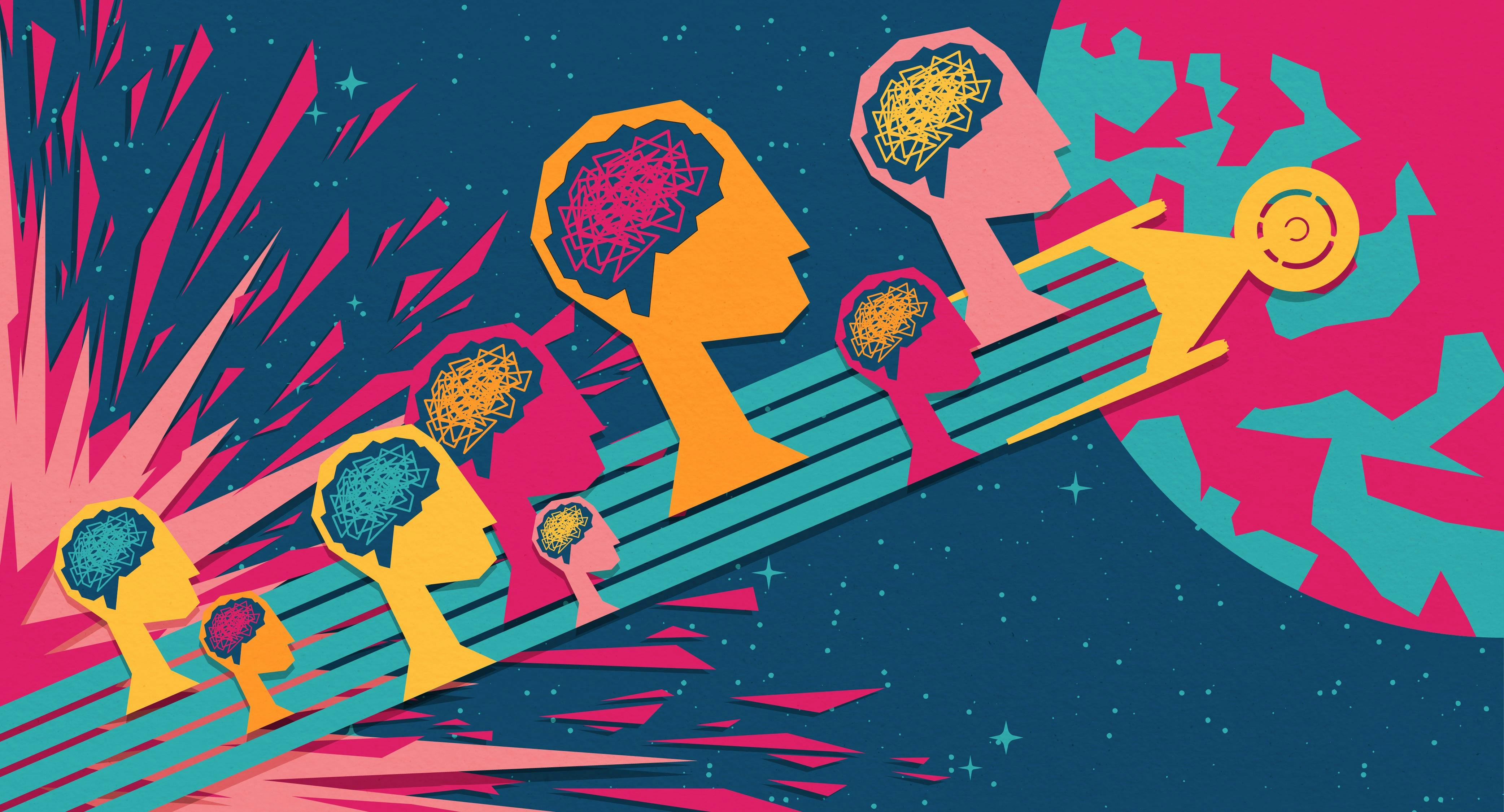
StarTrek.com
The third season of Star Trek: Discovery was ambitious from its first moments – catapulting its crew into an undiscovered far future that looks much different from the world they left behind and bears literal resemblance to anything we ourselves recognize. With a weakened Federation and a galaxy full of planets with changed relationships and new agendas, viewers were as out of step in this time as those aboard Discovery itself.Yet this narrative reset ultimately proves to be one of the smartest things the series has ever done, allowing it to wipe the slate clean of Klingon wars and legacy characters and strike out on its own path. Season 3 is largely a story of hope and healing, one in which a group of out-of-time misfits not only forge a place for themselves in this new future, but remind those already living in it of the values they themselves once believed in.But Discovery was at its best this year when it turned its gaze inward, exploring the psyches of its crew members with the same dedication that it explores the strange new worlds of the 32nd Century. From the emotional trauma of the group’s jump to the future to questions of identity and belonging, Discovery has focused on the interior lives and mental health of its characters in largely unprecedented ways this season.
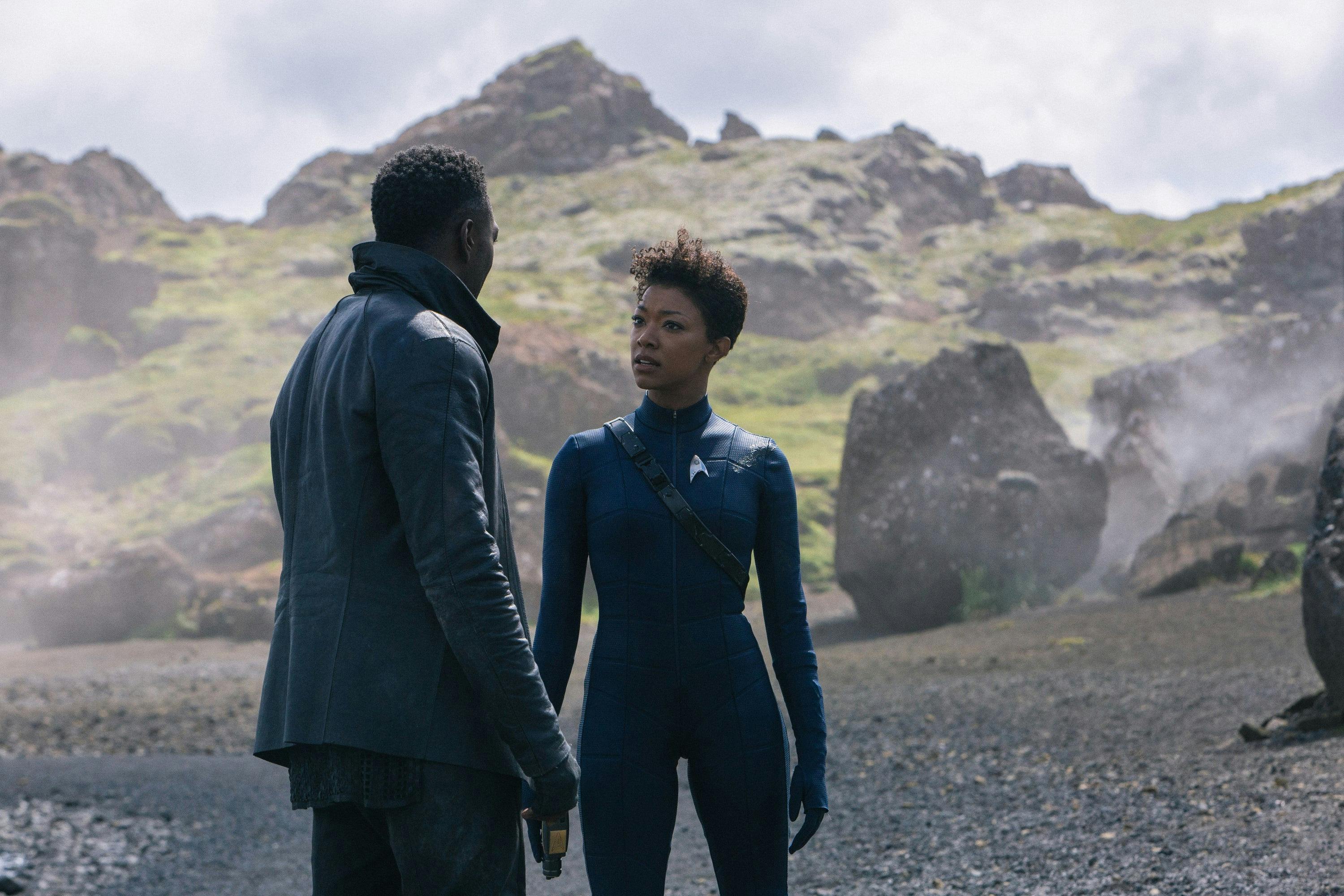
StarTrek.com
Star Trek has always offered a more hopeful, healthy view of humanity’s future. But it has often restricted that idea to the broadest sorts of strokes, promising that eventually modern-day problems like racism, sexism, and homophobia would cease to exist in a utopian society that has finally embraced its better angels and works together for the good of all. (Which, you know, fingers crossed for us eventually!)But the franchise has often struggled to accurately depict mental illness or the ways a more advanced society might deal with emotional trauma. This is not for lack of trying, however. Counselor Deanna Troi was out here trying to get everyone to talk about their feelings back in Star Trek: The Next Generation! And various characters, including both its Captain Jean-Luc Picard and Deep Space Nine’s Miles O’Brien, suffered from post-traumatic stress disorder after horrific personal experiences.Yet, Star Trek has always been limited by our own modern-day understanding of mental illness, and the stigmas that surround it. This is why it’s exciting to see the franchise so clearly evolving on this issue, just as contemporary culture has done. Discovery is the first Star Trek installment to delve quite this thoroughly into issues of mental and emotional health, and its unflinching honesty about how destabilizing and difficult an experience being a Starfleet officer can be feels like a revolutionary – and necessary – choice for the franchise.Previous Star Trek series would often show destruction and devastation onboard a bridge, or depict a particularly harrowing mission for specific crew members. But, with few exceptions, the effects of those events would generally dissipate by the time the story reached an episode’s closing credits, and things would rest to feel spotless and new again a week later.
Discovery’s third season not only shows viewers that the ship’s crew are deeply affected by their jump to the future, it makes their lingering trauma a key part of the story it’s telling. It truly commits to showing us characters who are not only deeply impacted by what they’ve gone through but are permanently changed by it.
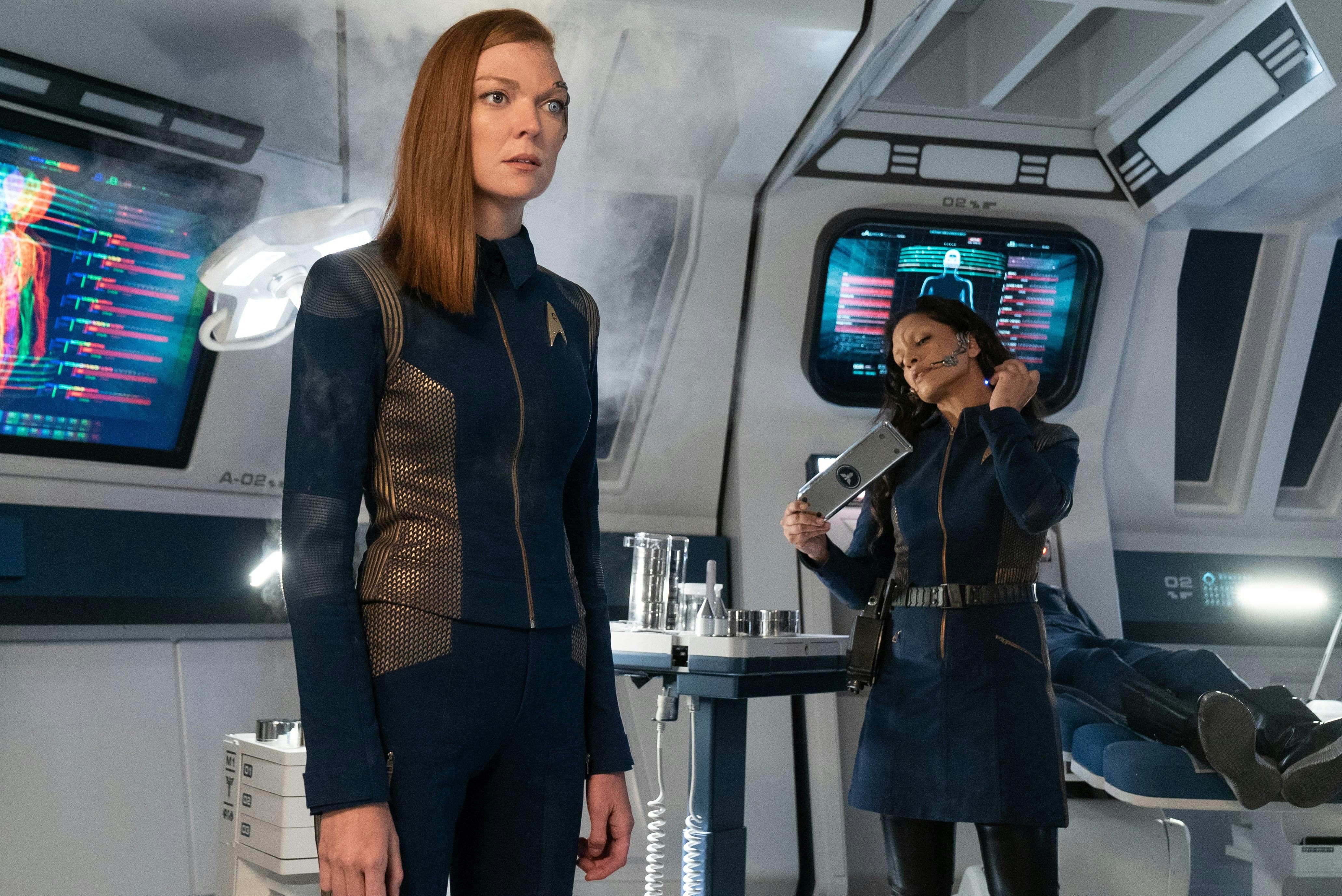
StarTrek.com
From the emotional ramifications of leaving everything you know behind to losing the touchpoints that ground most people – birthdays, anniversaries, and the like – Discovery is clear about what its eponymous ship’s crew has had to sacrifice to save the future, and how much they’re suffering because of it. From the PTSD that prevents some from doing their jobs to the anxiety others feel when undertaking certain tasks, this is perhaps the most honest Star Trek has ever been about how damaging this life be – and how long characters can carry its darker moments with them. Keyla Detmer’s paralyzing anxiety on duty is situated well alongside Michael Burnham’s difficulty reconciling the woman she once was with the one this future has made her, both reactions making it clear that the Discovery’s crew isn’t fine, and may not be again for some time. Even Emperor Philippa Georgiou, a hardened despot from the Mirror Universe, finds herself floundering in this new reality, experiencing frequent disorientation and disturbing flashbacks as a result of being displaced too far from her own time.Truthfully, when we think about the things some of these characters have endured, it’s a wonder they’re still standing. But that fact – the interior resilience we see as they attempt to adjust to a new normal and solve their old problems – is actually incredibly hopeful and inspiring.Discovery Season 3 also leans pretty heavily into the concept of “post traumatic growth,” the idea that certain specific events can inspire positive psychological change, and we can learn to live our lives a different way as a result of going through them. Dr. Hugh Culber, who knows from disturbing experiences — having been murdered and then resurrected himself – is a big proponent of this process, and has seemingly identified it in several crew members. Perhaps Hugh’s sudden interest in dispensing mental health advice stems from a similar need – to process his own lingering emotional issues as a result of dying by helping others face their own. Whatever the reason, it’s a development that’s long overdue.
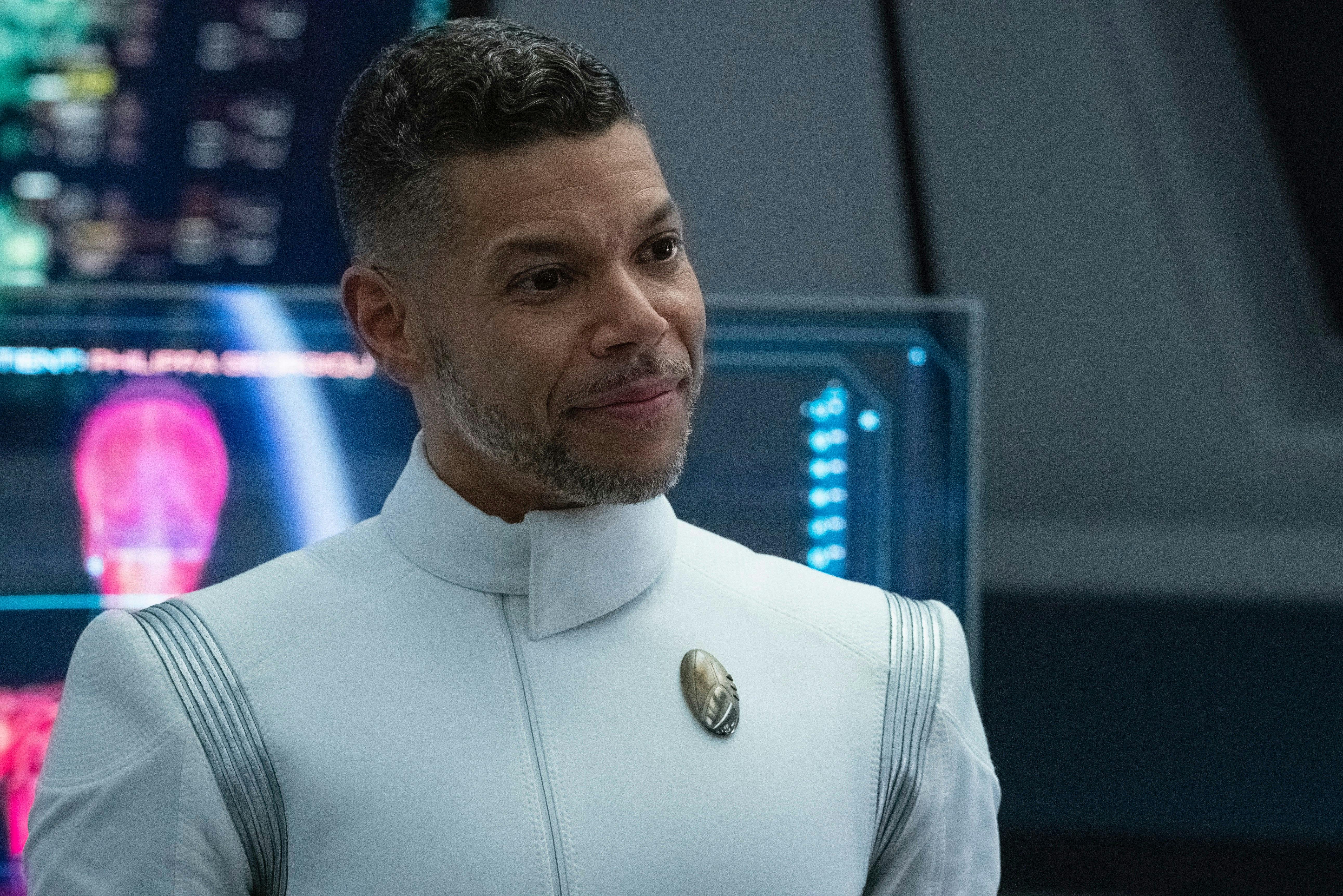
StarTrek.com
It’s Culber that attempts to address the crew’s collective trauma by giving them new rites and rituals to replace the ones they left behind. It’s also the good doctor who encourages them to heal by properly mourning the things they lost, and it’s Hugh once again who gently calls out specific members like Michael and Keyla for what he sees as damaging or potentially dangerous behavior. Though the Discovery first existed long before there were official ships’ counselors like Deanna Troi, Culber is forging his own place as a resource and advocate for those who may not feel comfortable addressing these problems themselves.And it is that same sensitivity and empathy that ultimately saves the galaxy, in the end. By reaching out to young Su’Kal, the abandoned Kelpian child who’s out of control emotions and unique genetic connection to dilithium caused The Burn that crippled the Federation a century earlier, Saru and Culber are able to prevent a second. And they do so simply by listening – by caring about the story of a scared young man who didn’t know what to do with everything he was feeling, and destroyed millions when he let it all out.“Even in fear, Su’Kal, you can still step forward,” Saru tells him, because maybe we can’t help the way we feel in response to something, but we can still choose how we react to it. It is Saru and Culber’s combined willingness to show empathy, to help someone else face their own inner demons, and to convince them they still matter that ultimately saves the day.After a season that wrestled with emotional traumas great and small, this feels like perhaps the most positive note it could ever have chosen to end on. Fear doesn’t go away completely. Some days will be darker than others, no matter what we do. But we can step out to meet the darkness anyway. Together.
A Timeline Through the Star Trek Universe

